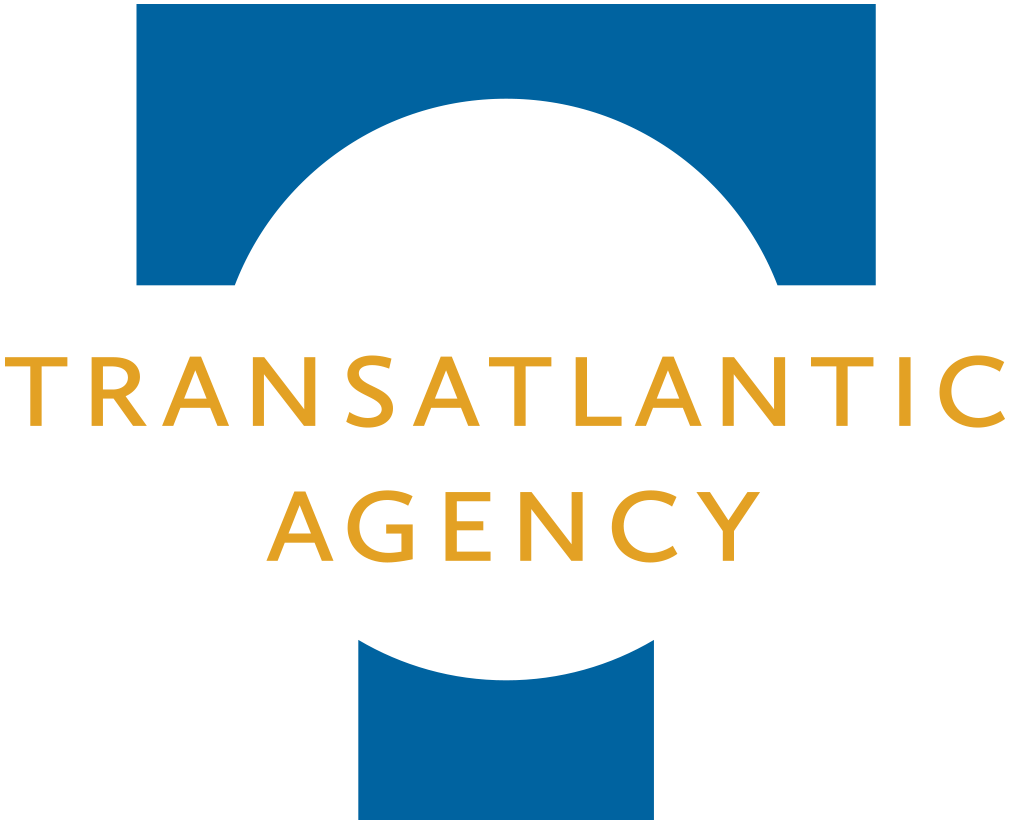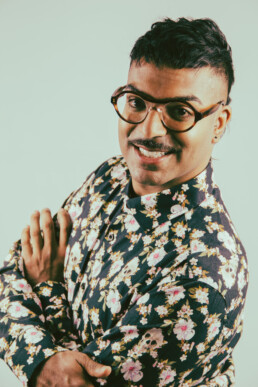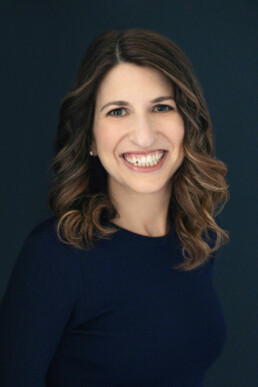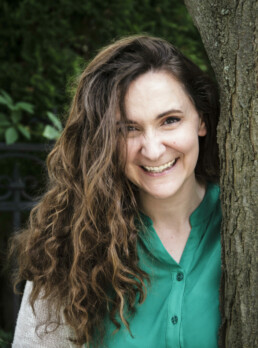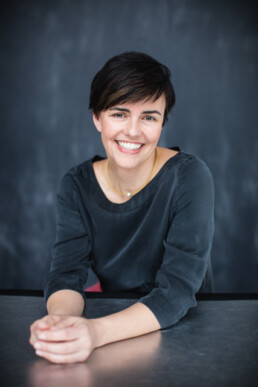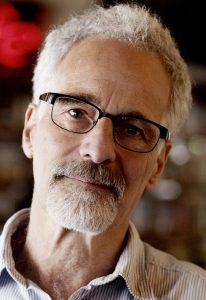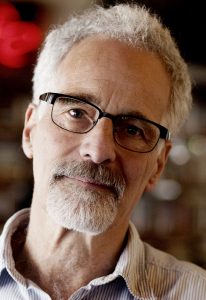Rahim Thawer
Rahim Thawer (he/him) works as a psychotherapist, clinical supervisor, EDI consultant, facilitator and public speaker, sessional lecturer, writer, and community organizer. He began working in the HIV/AIDS sector in 2008 and dedicated over a decade to LGBTQ Muslim community organizing. He was welcomed as an International Visiting Scholar with the South African College for Applied Psychology (SACAP) for the 2021-2022 academic year and has taught as a lecturer at multiple universities in Canada. He’s an appointed Fellow at the Bonham Centre for Sexual Diversity Studies at the University of Toronto for his contributions to the field of sexuality.
He was a co-editor and contributor for an anthology entitled Any Other Way: How Toronto Got Queer, which was shortlisted for the 2017 Toronto Book Awards. He’s currently working on books under contract with Thornapple Press and Blue Cactus Press. His self-published essays on shame and sexuality, the social and sexual dimensions of envy, supporting LGBTQ Muslims, and the nuances of doing clinical work in communities you belong to can be found on Medium.
SPEAKING TOPICS
Rahim has spoken on over 35 topics related to queerness, identity, social justice, mental health, harm reduction, psychotherapy, social work practice, and cultural awareness. He uniquely combines EDI topics with the lens of psychological well-being.
BEING ANTI-OPPRESSIVE IN OUR FIELD
We all offer critical front-line services for people who are vulnerable and who need very real forms of support. In the public sector, we encounter people who are constantly enduring the systems and cycles of poverty, abuse, addiction, and illness. While we aim to “meet people where they’re at” we can sometimes falter and forget to reflect on our relative position in the world to the people we work with. Further, we may feel helpless or fatigued to consider the position we’ve been placed in to support individuals who are up against grating systems. Talks that explore anti-oppression concepts focus on power, privilege and oppression and consider how they operate in our world for both our clients and ourselves.
MANAGING VICARIOUS TRAUMA
Talking about trauma has become a big business for good reason. However, it’s useful to take a step back from the jargon and explore the concepts of trauma, trauma-informed, and vicarious trauma. This talk invites participants to examine the roots of trauma and sources of vicarious trauma in their own industry followed by a discussion of micro- and meso-level interventions needed to support individuals. Rahim will present a model for creating healthy boundaries and a burnout prevention plan.
QUEER MEN’S MENTAL HEALTH
We often reduce mental health to diagnostic labels, wellness to the absence of symptoms, and queer men’s health to prevalence rates. If we take an exploratory approach to mental health and wellness we can begin to unravel some of the specific determinants of mental health concerns that affect GBTQ2S guys. As a racialized queer psychotherapist, Rahim examines 13 unique determinants that queer men come up against that impact their well-being. These will include but are not limited to, internalized shame, body image, substance use, ageing, and the landscape of connection-seeking.
OTHER COMMONLY REQUESTED TOPICS
Shame and sexuality; Supporting family members when someone comes out; The matrix of envy; Body image and wellbeing; Innovation in queer relationships; The meaning of substance use in our lives.
Jean Meltzer
Jean Meltzer has the unique distinction of being the world’s only Emmy-award winning, chronically-ill and disabled, rabbinical-school drop-out. Yet, it is this extraordinary background—coupled with a firm belief in holding onto your joy and seeking out happy endings—which forms the basis of her diverse work.
Jean received her BFA from New York University, Tisch School of the Arts, Department of Dramatic Writing in 2002. After graduation, she served as Creative Director of Tapestry International, an Oscar-winning television and film production company, where she oversaw the writing, development, and production for over 250-hours of children’s television, and won numerous awards for her work. In 2006, Jean moved to Israel to pursue a career in the rabbinate, and studied at several colleges and seminaries for five years.
She also became an outspoken advocate for the disease, Myalgic Encephalomyelitis/Chronic Fatigue Syndrome (ME/CFS). In 2012, Jean ended her rabbinical studies and spent many years homebound due to this disease.
Today, Jean lives a joyful, chronically-fabulous, Jewish life in Virginia. She is the author of the internationally bestselling books The Matzah Ball, Mr. Perfect on Paper, and Kissing Kosher, and the recipient of several writing honors including Amazon Best Romance, Apple Best Book of October, Apple Best Audiobook of the Year, and Booklist Top Ten Romances for 2023. Her fourth book, Magical Meet Cute, publishes August 24 th, 2024.
Jean’s passion for joyful living extends beyond the page. Jean is an experienced speaker, having shared her incredible story with countless organizations across America. She is also the creator of the group Jewish Women Talk about Romance Books and The Jewish Joy Book Club, a monthly meet-up of over eight-hundred women reading novels that focus only on Jewish Joy and celebrating Jewish life. She is also a founding member of The Artists Against Antisemitism, established in 2023, which works with a diverse group of artists to combat antisemitism through fundraising and education.
She is also the host of the podcast, Chronically Fabulous with Jean Meltzer, produced in partnership with Zev Hurwich at Aeaea LLC, which highlights the achievements of the chronically disabled.
SPEAKING TOPICS
Jean prefers to work directly with her clients in order to tailor-craft an event that best suits their needs. Given her varied background, she has a unique understanding of the needs of the Jewish world, and is also able to speak from personal experience on issues of health, disability, aging, chronic illness, and advocacy. She is available for ted-talk style speeches, which she sprinkles with her signature brand of unapologetic joyfulness and humor, before summing it up neatly with her life-affirming and always-inspiring words of Torah, and Jewish wisdom.
In addition to creating a memorable event specially tailored to your needs, Jean is also able to include book readings, audience breakout sessions, sneak peeks of future books, and signings into any event.
No matter what the needs of your organization may be, Jean’s ultimate goal is simple. She wants to inspire all in attendance at one of her events to go out and create their own happy endings. She believes that brokenness is the key to crafting and creating a better world for all of us. To that affect, she has a personal interest in working with non-profits and organizations that are fundraising for good causes.
WORKSHOPS AND CLASSES
For those seeking longer or more specialized events from Jean, she is also available for a wide variety of workshops and classes. Some of the topics that Jean enjoys teaching and speaking about are:
- Writing Jewish Joy: Re-envisioning Jewish stories for a modern age.
- Making the Invisible Visible: Writing chronic illness and invisible disability on the page.
- Craft Basics: How understanding film structure can improve your novel.
- Pitch-Perfect Romance: Learn the secrets to writing tension-filled romance.
- Find Your Funny Bone: Improve comedic elements in your own work.
- Clergy Writing Seminar: For religious professionals interested in improving their sermon writing skills.
SELECTED PRESS
“The Matzah Ball had me laughing out loud… an all-around terrific read!” – Debbie Macomber, #1 New York Times Best Seller
- A MOST ANTICIPATED BOOK SELECTED BY *POPSUGAR *BUSTLE * BUZZFEED *BOOKRIOT *BOOKPAGE *GOODREADS MEMBERS
- BEST APPLE AUDIOBOOK OF 2021
- SOON TO BE A MAJOR MOTION FILM
https://deadline.com/2022/02/sugar23-jean-meltzer-the-matzah-ball-lance-ball-1234926423/
VIDEO LINKS
https://www.facebook.com/watch/live/?ref=watch_permalink&v=881266216083785
To book Jean Meltzer, contact Rob Firing at speakers@transatlanticagency.com.
Amanda Leduc
Amanda Leduc is a writer, speaker, and disability rights advocate. She is the author of the non-fiction book Disfigured: On Fairy Tales, Disability, and Making Space (Coach House Books, 2020), which was longlisted for the 2020 Barbellion Prize, and the novels The Centaur’s Wife (Random House Canada, 2021) and The Miracles of Ordinary Men (ECW Press, (2013). Her new novel, Wild Life, is forthcoming from Random House Canada in spring 2025.
Amanda holds a Masters degree in Creative Writing from the University of St. Andrews, Scotland (2008), and a Bachelor of Fine Arts in Creative Writing and Philosophy from the University of Victoria, BC (2006). She speaks regularly at festivals, conferences, and events across Canada, the US and Europe on accessibility, inclusion, and disability in storytelling, and contributes regularly to publications across Canada, the US, and the UK.
SPEAKING THEMES
Many of us in the Western world have grown up on fairy tales—but what happens when you identify more with the Beast than with Beauty? When you occupy a different space in the world, what does it mean to see stories that continually place you—and all others who might speak or move or act differently—in the role of the villain, or frame your lived experience of disability as something that must be overcome through good deeds and good fortune? This is a reality that disabled people face all of the time. It is one thing to face a physical world that is constantly built without the disabled body in mind; it is still yet another to face a world where stories of the disabled and othered body continue to build and enforce social exclusion of some of society’s most marginalized people. Many people think nothing of reading a fairy tale where the disfigured witch is punished and held up as someone to be afraid of—but neither do they then think of this fairy tale’s power when they go out into the world and unconsciously or consciously avoid those who look and move differently as a result.
The stories that we tell have enormous power. Fairy tales and folk tales are never only stories—they are told again and again to us as young children, and they have a key role in shaping what we grow to expect of the world. When we are constantly exposed to stories in which disabled people are maligned, or made into villains, or where the “ugly” Beast is made beautiful once he learns how to properly behave, we unconsciously begin to expect a real world that conforms to these same expectations—where the disabled and other are evil, and vanquished at the end of the tale.
When you only ever see a disabled person as a villain you do not think about how to build a world for a disabled person in real life. What role does the media, then, have in building a world that is more accessible and inclusive? How can we incorporate the lived experiences and expertise of disabled people in storytelling that stretches across all types of media? From fairy tales to Hollywood blockbusters through to sensitivity readers and portrayals of disabilities in the page; from holding inclusive events through to hiring and including disabled voices in all managerial decisions, the work of building an accessible world is one that starts with the stories that we tell and should continue to inform every element of corporate, artistic, and social decision making. We need to start (and continue) this conversation by placing disabled people and their insights at the centre of every conversation.
VIDEOS
- Conversation with Nam Kiwanuka on TVO’s The Agenda, July 2020:
- Interview at the Six Bridges Book Festival, October 2020:
- “Reading and Writing Disability” Keynote Lecture given at the Fraser Valley Literary Festival, November 2020:
SPEAKING TOPICS
- Disability in storytelling, history of
- How to portray disability sensitively in storytelling
- The impact of fairy and folk tales on modern day perceptions of disability
- How to build accessible environments in the literary/cultural realm
- How to curate accessible festivals
- Science fiction, fantasy, and the portrayal of the bothered body
- Character development in fiction and non-fiction
- Telling hybrid stories—weaving the personal with the academic in essay form
To book Amanda Leduc, contact Rob Firing at speakers@transatlanticagency.com.
Lezlie Lowe
Lezlie Lowe
BIO
Where others see everyday public toilets, Lezlie Lowe sees the urge to go deeper.
Lezlie is the author of No Place To Go: How Public Toilets Fail Our Private Needs. She’s Canada’s number one expert on the social meaning and infrastructural importance of public bathroom provision and a sought-after consultant on municipal bathroom strategies.
An engaging and praised public speaker, Lezlie (she/her) is a Halifax-based multi-media journalist and journalism instructor at the University of King’s College. Her work has appeared in The Globe and Mail, CBC Radio’s Ideas, The Independent, The Walrus and The Guardian.
THE TOPICS
Stall tactics: why cities turn a blind eye to public bathrooms
Liveability and walkability are touted goals for many cities, but planners and leaders often lose sight of one crucial component to make their municipalities friendlier: public bathrooms. This talk looks at how cities got here, the myriad social and economic benefits of public toilets, and how cities can approach creating more and better provision for the future.
Urine luck: public toilets as a metric for who matters
Who owns the city? Who gets to use public space? Without well-maintained grids of accessible, adequate public bathrooms, there can be no equitable access to our cities. And citizens — such as those experiencing homelessness, caring for small children, with medical conditions, or who use mobility devices — get left out. This talk looks at “bathroom privilege” and considers how public bathrooms are spaces that reveal not only our cultural neuroses but who matters in our cities and deserves public space, and who, implicitly, does not.
Rage against the latrine: public toilets as a feminist issue
Take a look around. Every concert intermission, every airport, every conference centre, every transit hub, there they are: women waiting in bathroom lines while men heading to the adjacent stalls breeze by. This talk deconstructs those lengthy queues, explaining how the built environment is so often designed by default for men, and showing that it’s not women that are broken, but public bathrooms.
On a roll: toilet walking tours
These 90-minute, all-ability walking tours can be designed for any city. Stops along the way highlight hidden-in-plain-sight barriers to local public bathroom provision and lay out the broader politics and history of access. It’s everything you wanted to know about public toilets but were afraid to ask, on the go.
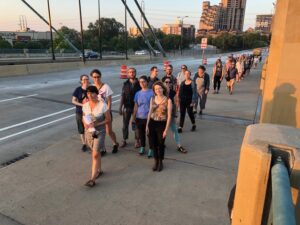
THE BOOK
No Place To Go: How Public Toilets Fail Our Private Needs is a marriage of urbanism, social narrative, and pop culture that shows the ways — momentous and mockable — public bathrooms just don’t work. No Place To Go highlights the inequity baked in to our cities by way of the most necessary technology of public space: the public toilet, a piece of infrastructure largely ignored by politicians and city planners and too-often simply tolerated by a long-suffering public.
Lezlie is represented by Carolyn Forde for her books.
Marc Lewis, Ph.D.
THE PERSON
Marc Lewis is a cognitive neuroscientist and professor emeritus of developmental psychology, at the University of Toronto from 1989 to 2010, now blogging, writing, and speaking on the science, experience, and treatment of addiction. He is the author or co-author of over 50 scientific journal articles on developmental psychology, emotion, and neuroscience. He now contributes regularly to The Guardian and other popular publications.
THE POINT
The harm done by addicts to themselves and those around them has riveted public attention. It has become essential to explain addiction in professionally sanctioned terms, and to that end doctors, psychiatrists, medical researchers and treatment providers have come to define it as a chronic brain disease.
Yet the idea that addiction is a disease doesn’t square with how the brain actually works. Nor does it square with the experience addicts have of their own struggles. Lewis has marshalled the data on brain change and interviewed hundreds of addicts. In his writings and talks he shows that the neural changes accompanying addiction also accompany normal learning and development. Yet these changes are accelerated (and preserved as habits) when learning is driven by intense motivation, as it is in love, religion, war, and racism, as well as in addiction.
The brain changes that go with addiction don’t indicate a diseased brain. They indicate plasticity in response to strong attractions, in a brain that keeps developing. The implications for recovery are vital. Treatment succeeds when the assumption of helplessness is replaced by tools for empowerment, insight, and continuing growth.
SELECTED TALKS
Presentation at TEDx–Radboud University
May 29, 2013
Conversation with the Dalai Lama at the Mind & Life “Dialogue,” Craving,
Desire, and Addiction, Dharamsala
October 28, 2013
Presentation hosted by Johann Hari at the Festival of Dangerous Ideas, Sydney Opera House
September 6, 2015
Nobel Conference on Addiction, Gustavus Adolphus College
October 7, 2015
Presentation at the Royal Institution, London
July 14, 2016
Public debate, David Winston Turner Endowment Fund, Melbourne
October 21, 2016
ARTICLES
To book Marc Lewis PH.D., contact Rob Firing at speakers@transatlanticagency.com.
